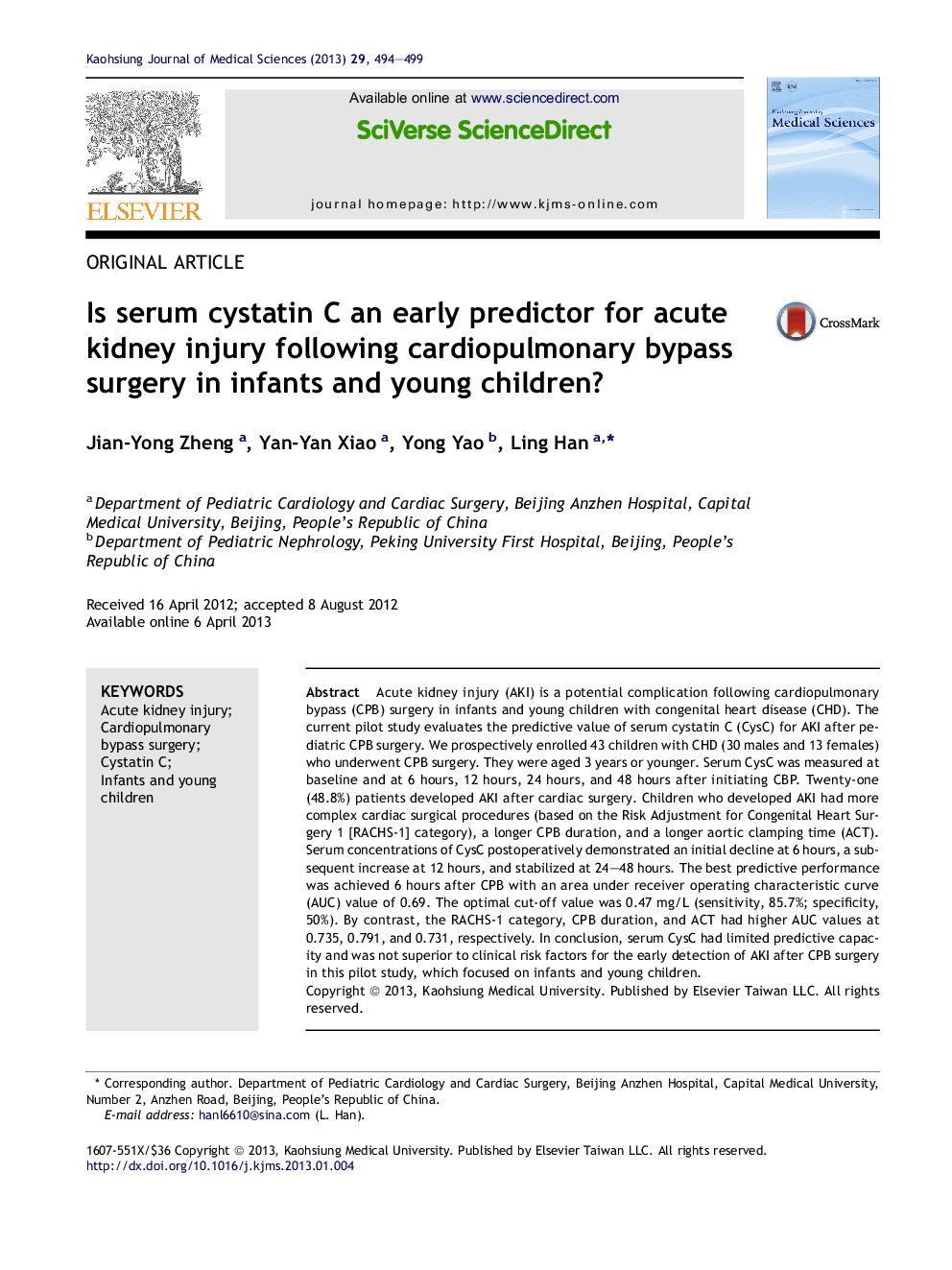| Article ID | Journal | Published Year | Pages | File Type |
|---|---|---|---|---|
| 3485663 | The Kaohsiung Journal of Medical Sciences | 2013 | 6 Pages |
Acute kidney injury (AKI) is a potential complication following cardiopulmonary bypass (CPB) surgery in infants and young children with congenital heart disease (CHD). The current pilot study evaluates the predictive value of serum cystatin C (CysC) for AKI after pediatric CPB surgery. We prospectively enrolled 43 children with CHD (30 males and 13 females) who underwent CPB surgery. They were aged 3 years or younger. Serum CysC was measured at baseline and at 6 hours, 12 hours, 24 hours, and 48 hours after initiating CBP. Twenty-one (48.8%) patients developed AKI after cardiac surgery. Children who developed AKI had more complex cardiac surgical procedures (based on the Risk Adjustment for Congenital Heart Surgery 1 [RACHS-1] category), a longer CPB duration, and a longer aortic clamping time (ACT). Serum concentrations of CysC postoperatively demonstrated an initial decline at 6 hours, a subsequent increase at 12 hours, and stabilized at 24–48 hours. The best predictive performance was achieved 6 hours after CPB with an area under receiver operating characteristic curve (AUC) value of 0.69. The optimal cut-off value was 0.47 mg/L (sensitivity, 85.7%; specificity, 50%). By contrast, the RACHS-1 category, CPB duration, and ACT had higher AUC values at 0.735, 0.791, and 0.731, respectively. In conclusion, serum CysC had limited predictive capacity and was not superior to clinical risk factors for the early detection of AKI after CPB surgery in this pilot study, which focused on infants and young children.
